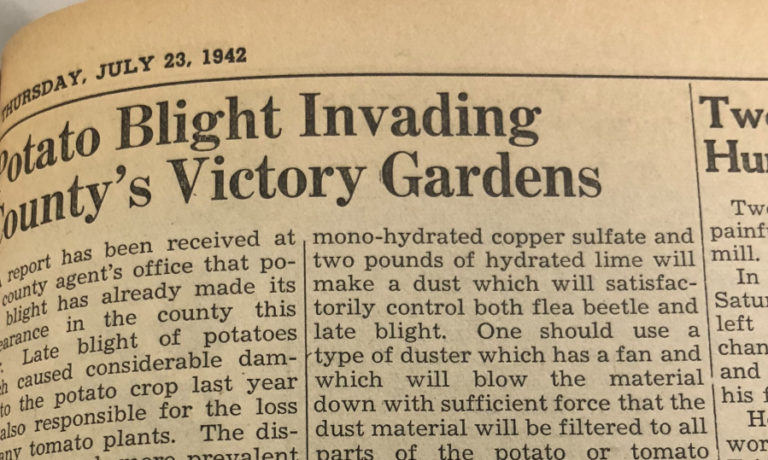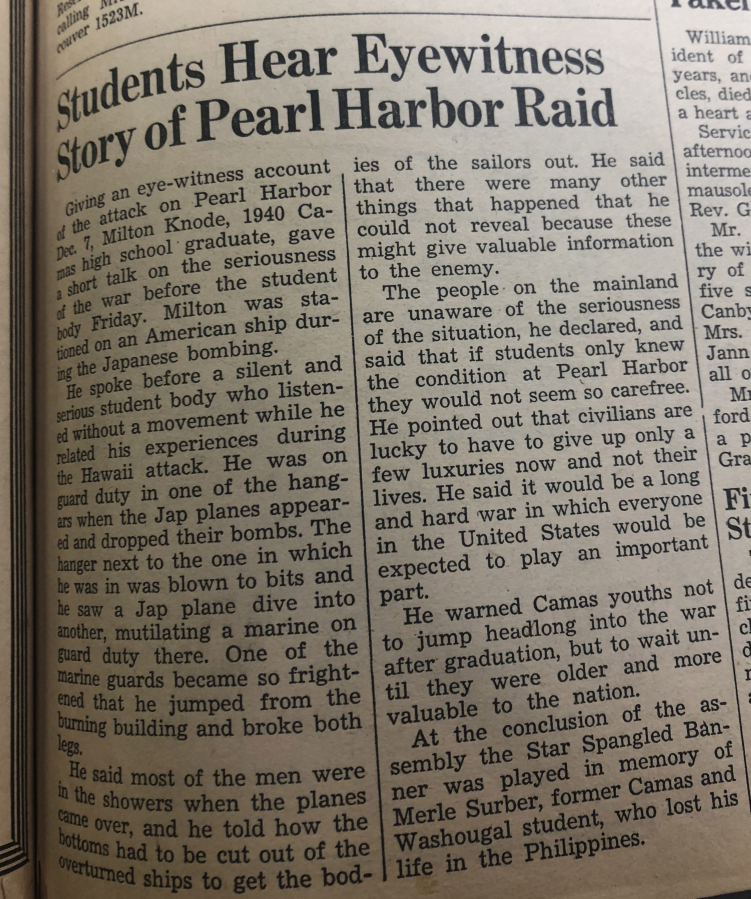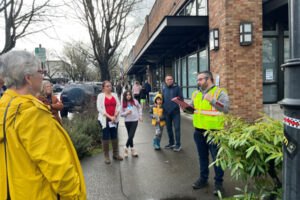War causes layoffs at Washougal woolen mill: Rationing of wool — a result of World War II efforts in the Pacific — caused the layoffs of about 40 third-shift workers at the Pendleton Woolen Mills in Washougal, according to a front-page article published in the Jan. 8, 1942 Post-Record.
“The cut in production, which is for the first quarter of 1942, actually will be more than 20 percent in Washougal, because it is based on the consumption levels of the first six months of 1941, before the third shift was added,” the article reports.
‘Home rendered lard’ sells for 75 cents per 4-pound package: An advertisement published in the July 23, 1942 Post-Record for Volstorff’s Camas Meat Market shows 1942 prices: 38 cents for 1 pound of “boned and rolled prime rib roast” or “Swift’s Premium smoked pork link,” or 35 cents for 1 pound of “home cured bacon, by the piece.”
Women jump into political scene during wartime: “These are war times,” reads a political ad for Eva King Burgett, a candidate running for county treasurer, published in the July 23, 1942 Post-Record.
“Women, where qualified, should take their place in the industrial and official life of the community,” Burgett stated in her ad. “I was born and raised in Clark county and the only member of my family is one son who is now serving in the air corps of the U.S. army. … I would appreciate your vote at the Primary Election on September 8.”







